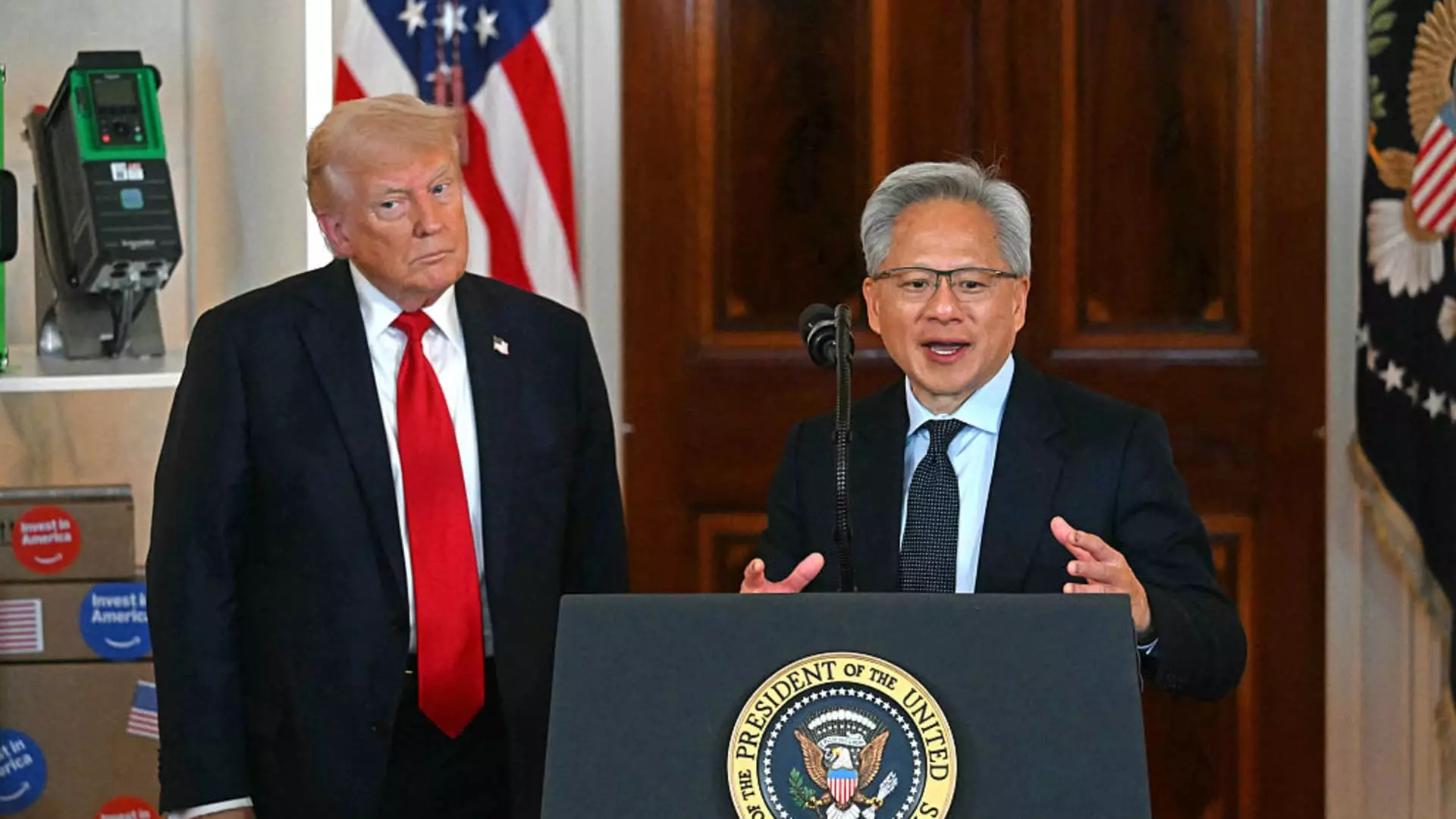The recent maneuver by the Trump administration to allow American tech giants like Nvidia and AMD to sell AI chips to China in exchange for a percentage of revenue is a shortsighted gamble that jeopardizes America’s technological supremacy. On the surface, this deal appears as a pragmatic effort to boost economic gains and foster global trade relationships. However, a critical examination reveals that such transactions are fundamentally flawed, risking America’s competitive edge and national security. Supporting China’s access—even with financial incentives—acts as a strategic weak point, undermining decades of American innovation and military readiness. This shortsighted approach contributes to a dangerous illusion that economic benefits can be prioritized over safeguarding advanced technological capabilities—an illusion that could cost us dearly in geopolitical conflicts.
Threat to National Security and Technological Dominance
The core concern voiced by dissenting senators is rooted in the crucial role that cutting-edge technology plays in national defense. The argument is straightforward: when China gains access to sophisticated AI chips, it can potentially accelerate its military modernization efforts—an outcome that US policymakers should actively seek to prevent. While Nvidia protests that the H20 isn’t militarily significant, history has shown that in the realm of technology and security, even seemingly benign advancements can be repurposed. Selling such advanced chips to one of America’s principal rivals is akin to handing them the keys to the future battlefield. This isn’t paranoia—it’s strategic caution. The United States must recognize that technology is intertwined with security, and yielding ground to China by any means diminishes both.
The Economic Seduction versus Strategic Autonomy
Proponents of the deal argue that revenue sharing and export licenses are mere business negotiations—artifacts of a globalized economy. But this perspective ignores the broader context: allowing China unfettered access to advanced AI chips entails a shift from strategic autonomy to economic dependency. The notion that selling tech for a percentage of revenue won’t impact our technological leadership is naive. Once American technology permeates Chinese military circuits or industrial sectors, the competitive landscape shifts, and America’s advantage erodes. This is a classic case of short-term gain concealing long-term vulnerability. If innovation is compromised now, the future of American dominance in critical AI applications is at stake.
Your Future Is Not a Bargain
The government’s willingness to barter away its technological superiority undercuts the very foundation of national strength. The deal, as it stands, suggests a troubling prioritization of quick financial returns over the preservation of strategic advantages. The Biden administration’s response—though not yet fully disclosed—appears to be teetering on the brink of risking the very security it vows to protect. The resistance from Congress is justified; the stakes are larger than dollars and cents—they are about safeguarding the technological lead that underpins U.S. military power, economic influence, and innovation capacity. Surrendering this lead would be a betrayal of American ingenuity and decades of strategic investment.
Why China’s Rejection Should Be a Wake-Up Call
Even as Trump’s agreement is finalized, China’s response underscores the peril of this approach. Instead of a welcoming stance, China has signaled a desire to limit the use and purchase of U.S. chips, hinting at a split that could escalate into a broader confrontation—technological or otherwise. This hostility hints that the Chinese government perceives the U.S. concessions as a serious threat, prompting restrictions and countermeasures. It’s a stark reminder that technology–especially AI–is the new frontier of power. Weakening our defenses under the guise of economic opportunity risks igniting a domino effect, where defensive capabilities decline, leaving us more vulnerable than ever.
The Cost of Short-Sighted Policy
Ultimately, the Biden and Trump administrations are playing a dangerous game of appeasement, underestimating the broader geopolitical fallout. The financial gains promised by revenue-sharing agreements pale in comparison to the strategic losses we risk incurring. In the race for AI dominance, American leadership is essential—not just for economic prosperity, but to secure a dominant military posture and maintain technological sovereignty. If the U.S. continues to compromise on these principles, it may find itself technologically eclipsed—not by superior innovation, but by strategic complacency. The true cost of this reckless policy will be paid not in dollars, but in future security and global influence. The question remains: what price are we willing to pay for short-term gains at the expense of national security?

